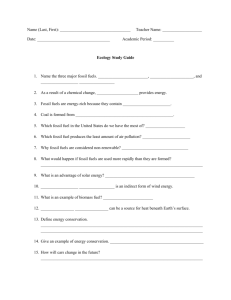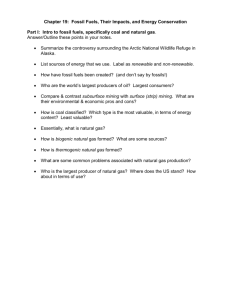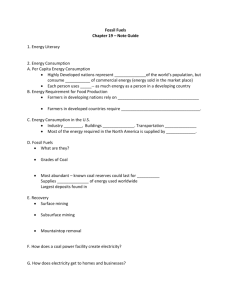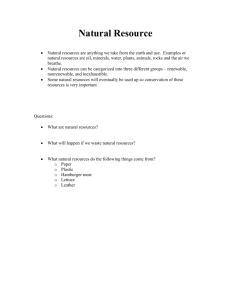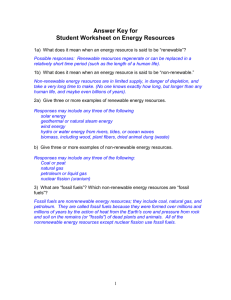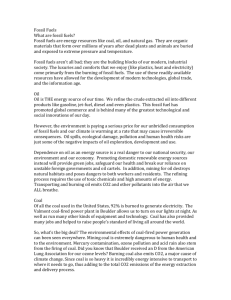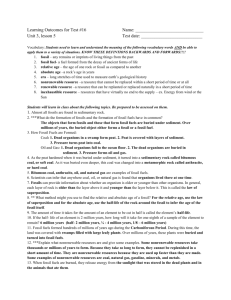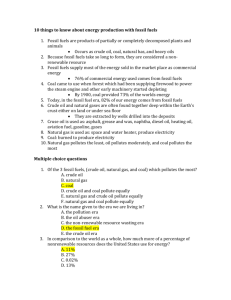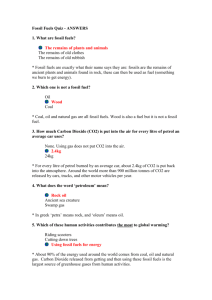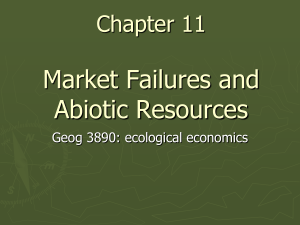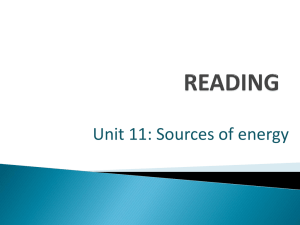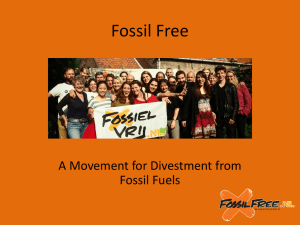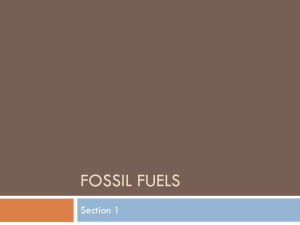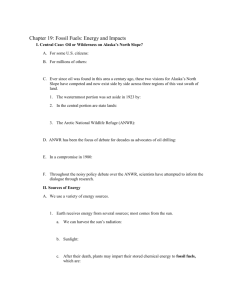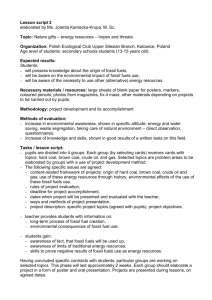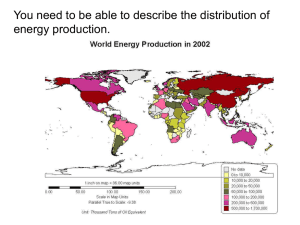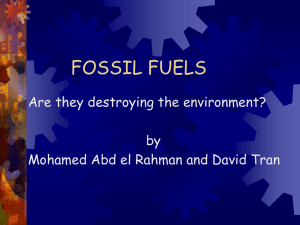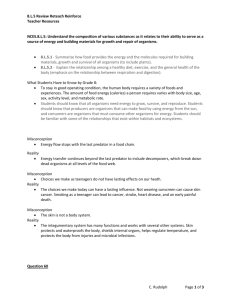Energy
advertisement
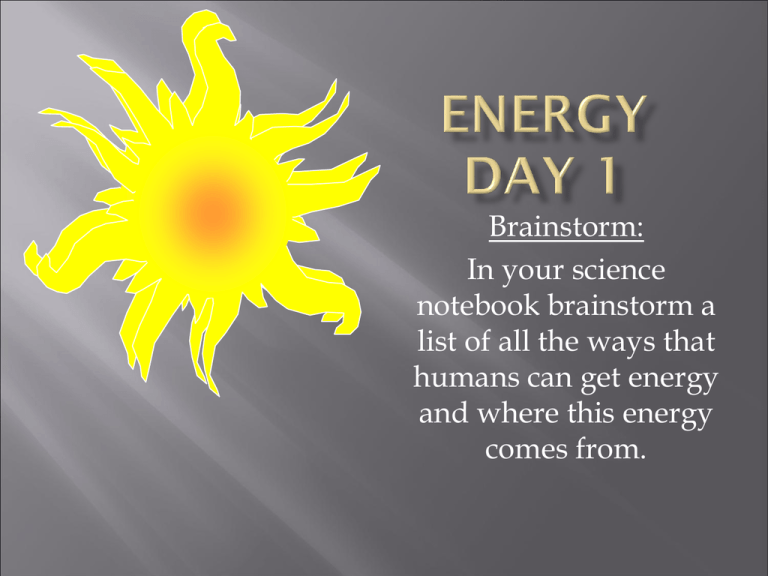
Brainstorm: In your science notebook brainstorm a list of all the ways that humans can get energy and where this energy comes from. Fossil FuelsCoal, Oil, & Natural Gas Coal •These are called “Fossil Fuels” because they are formed from the fossilized remains of prehistoric plants and animals. •These take millions of years to form. •They •Most are nonrenewable. of the USA uses Fossil Fuels for energy. Oil Natural Gas Coal •This is the most abundant fossil fuel in the United States. •It is a hard black rock-like substance formed from dead plants that were subjected to extreme heart and pressure. •When coal is burned for energy it releases SOx which forms acid rain. Oil & Petroleum •Oil was formed from the remains of tiny sea animals and plants that formed millions of years ago. •Oil has to be refined in order to be used. Example- gasoline •Oil can be harmful if it is spilled and as it is burned. •Most oil is used for transportation. Natural Gas Natural gas is formed from the remains of tiny plants and animals that died millions of years ago. It is found more than 6,000 feet under the Earth’s surface. When burned, it produces little pollution and is considered the most environmentally friendly fossil fuel. Used by a lot of people in the US for heating. http://app.discoveryeducation.com/player/view/assetGuid/AD775713044C-4F36-84BE-0AC703A28587 Brainstorm: In your science notebook brainstorm a list of things that are nonrenewable and a list of things that are renewable. RENEWABLE •These won’t run out. •Example- Winds will keep on blowing, whether we use the energy or not. •Most Often Used: Biomass, Wind, Water, Geothermal, and Solar. NONRENEWABLE •These will run out eventually. •Example- When we've extracted all the Earth's oil, there isn't any more. •Most Often Used: Oil, Coal, Natural Gas, Uranium Nuclear Energy •Nuclear power is generated using Uranium, which is a metal mined in various parts of the world. •Nuclear power produces around 11% of the world's energy needs, and produces huge amounts of energy from small amounts of fuel, without the pollution that you'd get from burning fossil fuels. http://app.discoveryeducation.com/player/view/assetGuid/BDE8EF602D21-4980-8199-BF50338107A4 http://www.huffingtonpost.com/2012/03/28/japan-fukushima-disaster_1_n_1384596.html Hydropower •This is energy that comes from moving water. •Usually works when a dam is built and water moves through “turbines”. •No air pollution is created but there are still negative impacts to the environment. http://app.discoveryeducation.com/player/view/assetGuid/C92E7A51 -8938-4808-971B-50AA4B3DF029

